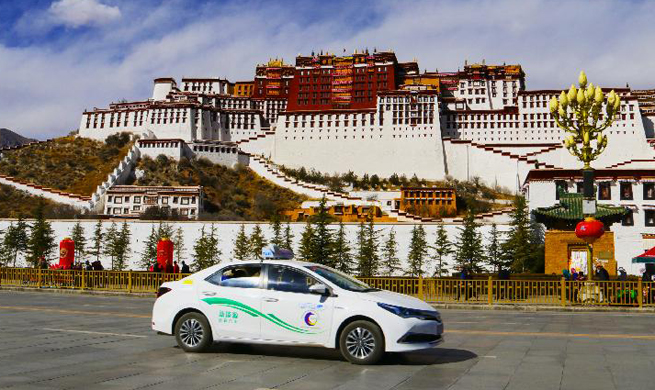HANGZHOU, Feb. 24 (Xinhua) -- Chinese auto company Geely has continued to expand its global automotive holdings by acquiring a 9.69-percent stake in Daimler AG for 9.2 billion U.S. dollars.
The purchase, which was announced by Geely on Saturday, makes the Chinese carmaker the largest single shareholder of Daimler AG.
"Geely will help Daimler take the lead in electric vehicles and online technological services," said Li Shufu, chairman of Geely. "Carmakers around the world need to work together and share technologies to make new progress in the current auto industry."
Zhejiang Geely Holding Group, headquartered in the eastern Chinese city of Hangzhou, is one of China's largest private automakers. It registered a sales revenue of about 270 billion yuan (43 billion U.S. dollars) in 2017.
The purchase is not the company's first attempt to make a foray overseas. Geely, which has long attempted to bring a Chinese-branded vehicle to the United States, is best-known for reviving Volvo.
The company paid 1.8 billion dollars to buy Volvo from U.S. carmaker Ford in 2010, bringing a renaissance to the Swedish-Chinese brand.
Geely also bought 49.9 percent of Malaysia's Proton and a 51 percent stake in Britain's Lotus last year.
In last November, Geely acquired all operations and assets of Terrafugia Inc., a U.S.-based flying car developer, and is expected to deliver the first flying car in 2019.
Geely is part of the broader global expansion of Chinese automakers.
China's Great Wall Motors announced Friday that it had signed a letter of intent with German auto giant BMW to produce electric models of its Mini cars in China.
Industry analysts said the project would be a boost for the two automakers to expand their new energy vehicles market.
The vast auto market in China and the rising strength of Chinese automakers have contributed to a series of worldwide mergers and acquisitions.
In 2017, car sales in China rose 3 percent to more than 28 million, leading the world for the ninth consecutive year, according to the China Association of Automobile Manufacturers.
"Acquisitions of Chinese automakers these years are more of strategic investments," said Gu Changchao of Tsinghua University.
Insiders say that challenges still remain in areas such as disposal and allocation of purchased assets, as overseas mergers and acquisitions involve different rules and laws in different countries and regions.
Gu said it was important that Chinese automakers can learn from the brands they acquire and develop their own technology.
"Only in this way can Chinese automakers further improve their technologies as well as world reputation," he said.

















